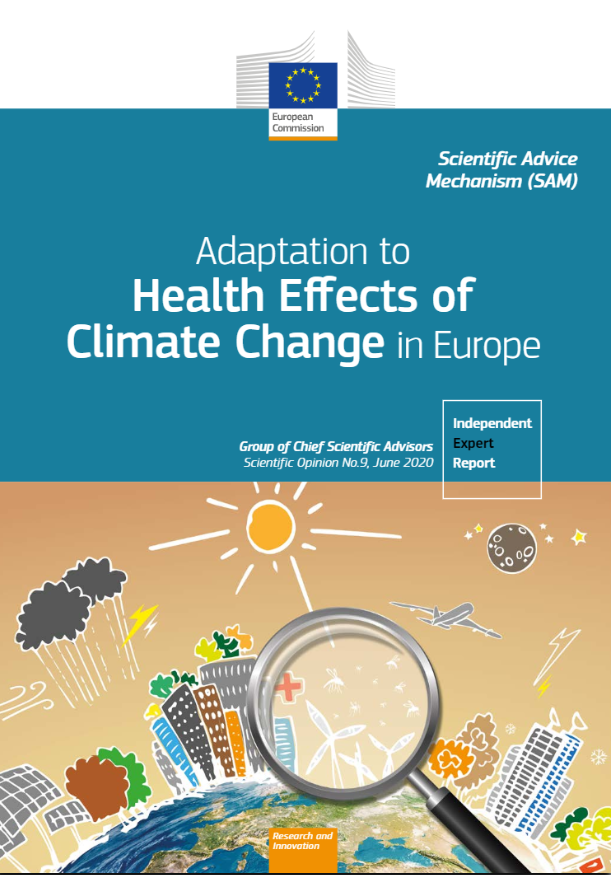Responding to climate change involves a two-pronged approach, including reducing the emissions of greenhouse gases (mitigation) and planning and acting to address those consequences of climate change that cannot be avoided (adaptation).
For health impacts, adaptation is defined as ‘designing, implementing, monitoring, and evaluating strategies, policies and programmes to manage the risks of climate-relevant health outcomes’ (WHO 2014).
This scientific opinion, published in June 2020, examines which adaptation measures could strengthen the European health sector with respect to impacts from climate change. It focuses on vulnerable groups, regions and the urban environment, and the impact of vector-borne diseases, heat and heat waves.








